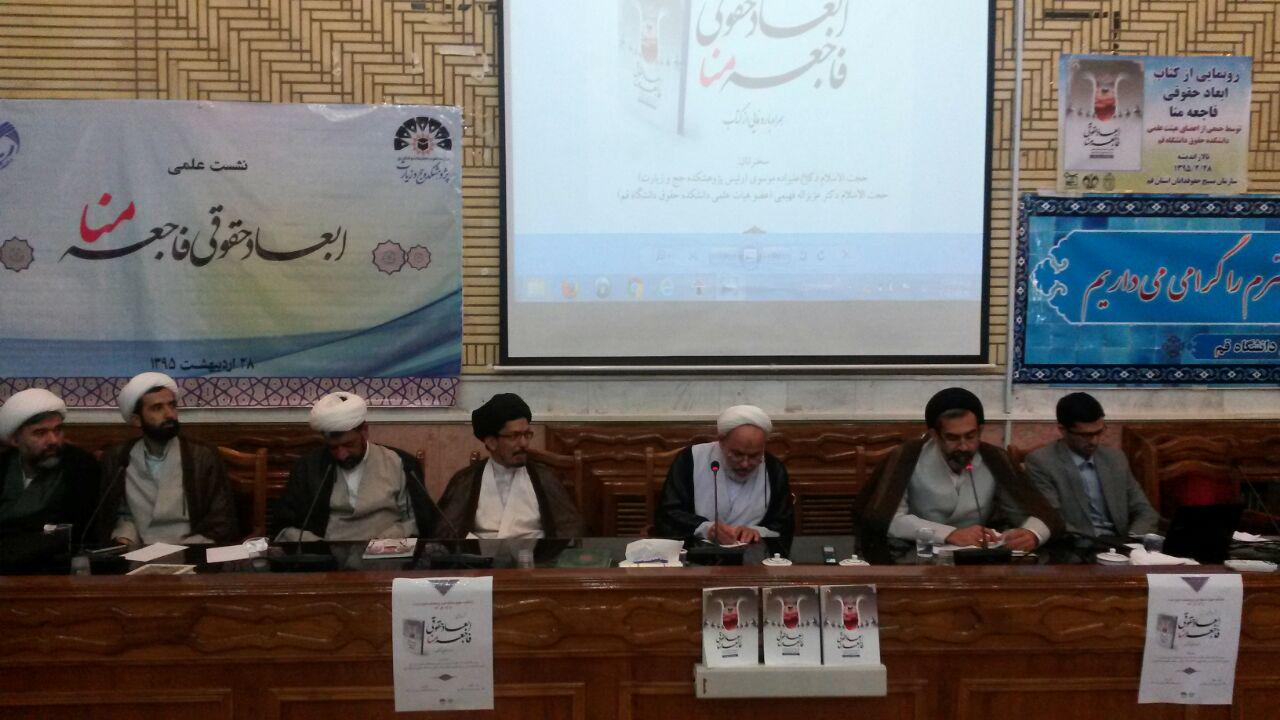
RNA – Speaking at an academic conference at the University of Qom, Hujjat al-Islam Sayyed Mahdi Alizadeh-Mousavi, the chairman of Iran’s Research Institute for Hajj and Pilgrimage, spoke on the legal dimensions of last years’ Hajj tragedy in Mina, saying “In regard to the tragedy in Mina, we are facing the world’s most secretive country.”
On 24 September 2015, a stampede during the annual Hajj pilgrimage in Mina, Makkah caused the deaths of at least 2,236 pilgrims, 464 of whom were Iranian, making it the deadliest Hajj disaster in history.
The scholar added that Saudi Arabia is a very closed country and little information can be found on the Wahhabi kingdom’s political and legal structure and stressed that the Saudi government does not even respect a minimal level of its citizen’s civil rights, especially the role of women in society.
The head of the Research Institute for Hajj and Pilgrimage noted that Saudi Arabia’s political structure is highly complex and they have obscured and distorted many legal and political issues from the eyes of the general public.
“Our researchers have been successful in overcoming these difficulties while preparing a book on the various legal dimensions of the tragedy in Mina ,” he added.
He said: “The House of Saud’s derisive look toward the people of other countries is one of the reasons that they will not accept any liability over the tragedy in Mina,” adding that currently seven million foreign workers live in Saudi Arabia but many of them are deprived of their basic rights.
Hujjat al-Islam Alizadeh-Mousavi said that despite this major disaster, only the Islamic Republic of Iran has dared to pursue the issue, adding: “Documents exist that show that the Saudi government has bribed other countries to ignore this shameful incident.”
He stressed that in addition to trying to cover up this tragedy, the Saudi government is using foreign countries and media networks to spread Islamophobia because foreign media networks are construing the Hajj rituals as a “massacre” while in the last few years, the Arba’in processions in Karbala have been held in peace and security, despite the presence of at least 15 million pilgrims in war-torn Iraq.
“This shows the imprudence and incompetence of the Saudi government,” he said.
In conclusion, Hujjat al-Islam Alizadeh-Mousavi stressed that such incidents should be clarified so that similar incidents do not happen again in the future and added that we should not simply dismiss the human tragedy of the Mina incident but this matter should be pursued by the authorities.
111/112